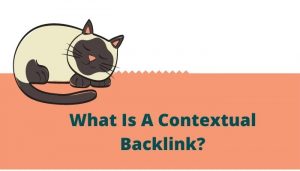According to Google, the purpose of releasing Google Panda was to reward high-quality websites; to make Google search more organic by diminishing the presence of low-quality websites.
Before the launching of Google Panda, Search Engine Optimisation (SEO) was a bit dirty. It was because of the presence of thin or shallow content on the internet.
Due to such content, high-quality sites didn’t always get better rankings in SERP (Search Engine Results Page).
This problem grew worse as more pages containing plagiarized, low quality, or irrelevant content began outnumbering sites with high quality, relevant and original content in search engine rankings.
To combat this menace, Google needed a new algorithm update. Thus enters Google Panda update into the scene.
What triggers Google Panda?
The Google Panda update is meant to address a number of issues in the Google SERPs, these include:
Thin Content: These pages contain very less relevant content, or the content may be less substantial. Such content is poorly written, doesn’t add much value or no value at all; for example, a set of pages that describe different parts of a car model with a few sentences present on each page.
Duplicate content: Websites that contain copied content from other sources. Such duplicate content appears in more than one place on the internet.
Duplicate content can also be deemed to appear when multiple pages on a website merely repeat the same content with a change of a few words or very little variation.
For instance, A car company creates some web pages each for the city it provides its services in; the content might have only the city’s name changed on each page with all the content remaining identical.
Low-Quality Content: Little value is provided to the human readers by such pages as they don’t contain in-depth information or do not add much information.
Lacking Authority: Such Content is produced by sources that are not deemed authoritative or verified. A site that aims to avoid the Panda penalty should try to gain authority status by all fair means, good content. It takes time to get recognized and become trustworthy in the eyes of people and search engines.
The sign of authority is that people trust the information a website publishes and are even confident to part with their personal details in lieu of some service or product provided by the website.
Content Farming: A lot of companies use the services of a lot of freelance writers to generate a lot of content that is suited to satisfy algorithms so that this content appears on SERPs.
Their chief aim is to generate revenue by attracting page views (this can also be treated as a kind of social spam). Such a body of content also lacks authority and value to its readers because their main goal is to top ranking in SERPs for every imaginable/conceivable term in that field of search by the user.
High Ad-to-Content Ratio: Pages that are mostly made up of paid advertising rather than quality or original content.
Misleading pages: There are pages that show the promise of delivering relevant answers if a link pointing to them is clicked on in the search results; but when clicked, it results in disappointment or the user feels cheated.
For example, a website’s page might have the title “Download movie for free”, but when clicked on there might be an unwanted redirect to some other page or it might just lead to a new page with lots of advertisements on it, ultimately resulting in disappointment.
How Google panda does affect SEO.
Since the aim of search engines is to provide the best possible answers for queries, Google Panda helps in achieving the same. Before the advent of Panda, it was possible to have poor quality content to match a user’s query and hence rank high in SERPs through such tactics.
But as Google Panda came in to deal with such tactics, it became difficult to cheat the Google Search Engine.
The earlier SEO practices, which worked well to rank pages in SERPs no longer effectively worked. Sites with such tactics were hit by the Google Panda penalty. This resulted in a decline in the traffic and rankings of such sites.
This update ensured that in most of the cases, only deserving high quality and trustworthy sites got better rankings. Also, rank (in the context of search queries) and priority are given to those pages which are niche-based or specialized rather than having generic content.
Since SEO is mainly involved with keywords and their orientation on a website, the content targeted by Panda is the website. So, Panda basically becomes a domain-level penalty.
A few web pages with low-quality content can cause the rank of the website to dwindle. Therefore, the quality of a post becomes all the more important as it is taken into account while ranking a website or a webpage. The role of on-site SEO becomes important as its strategies can help to create optimized quality content.
SEO is not a one-time job; it is a dynamic job with the change in strategies according to competition; search engine’s ever-changing ways; user queries and expectations and changing trends in SEO practices and the ever-changing world of new and older algorithms.
Therefore, a change in an algorithm such as Google Panda can cause SEO trends and practices to alter so that new ways could be evolved to keep a website’s worth in the eyes of a search engine.
This ensures that a website remains relevant to user queries in SERPs and ranks better. SEOs, therefore, are always alert towards any changes which might take place in Panda, as older strategies may not work after a new Panda update.
While creating content for a website, abundant caution must be taken in order to avoid penalties caused by the algorithmic updates of Google. The aforementioned triggering factors for a Google Panda must be taken into account to avoid Panda penalties.
It is also possible that one may have taken care of all the things and yet be struck by an algorithmic penalty. This rarely happens, besides, there are means to take care of such an event, should it arise. The ways to get rid of the Google Panda penalty have been described here later on.
What can be done to come out of Google Panda Penalty?
A perceptible fall in the rankings of a website over a period of time can give us some clue that our website has been hit by an algorithmic penalty. This can be accessed through various analytic tools.
Panda can be considered a pretty tough update when it comes to recovering from it. Panda update largely depends on the website’s content and quality; the steps to recover from a Panda penalty mainly focus on improving the quality.
The steps to remedy or avoid such a problem include the following:
Abandon content farming. As already explained content farming is the creation of a lot of content to attract traffic to a website for almost any topic. These tactics may cause a page to rank better as they may contain keywords that match the search query. It is better to quit such practices.
Revamp website content for quality. If the content on a website seems outdated or a lot of changes have occurred since it was last written then there is a need to rewrite it. Also, if the content is shallow or not quite adding a lot of value, it had better be written again.
Nothing matches thoroughly researched and cohesive well-written quality content. The content should be useful, relevant, trustworthy, and be able to inspire confidence enough to evoke authority.
Natural-looking content. It should be ensured that the content is written in such a way that it genuinely caters to the audience rather than focusing on placing keywords at all places where one can place them. Keywords should be strategically used but with an economy. This way the content looks natural and not manipulative hence gaining more trust and authority.
Duplicate content can be pretty deleterious to a website’s ranking. It’s better to remove duplicate content or rewrite it so that the page hosts unique and quality content. If a site has duplicate content, chances are that it will be excluded in rankings or be given the least priority over high-quality original pages from where the content has been copied.
Careful vetting of user-related posts on community or comments-based pages. If a website contains the contribution of posts from users, then proper moderation of such content should be ensured.
Such posts should be error-free, original, and useful to the readers as far as possible. If the content or comments are repetitive and irrelevant, search engines might deem it as spam and accordingly penalize a site.
Use the Robots noindex, nofollow command to block the indexing of duplicate or near-duplicate internal website content or other problematic elements.
Removal of old or broken links from the website.
Removal of unnecessary pages from search.
The above steps can be followed to recover a site from the effects of the Panda algorithm. Once followed, it may take some time before Google re-crawls and re-indexes our website. Once this is done, the ranking of the site goes up and traffic is restored again. A little bit of patience here is the key.







